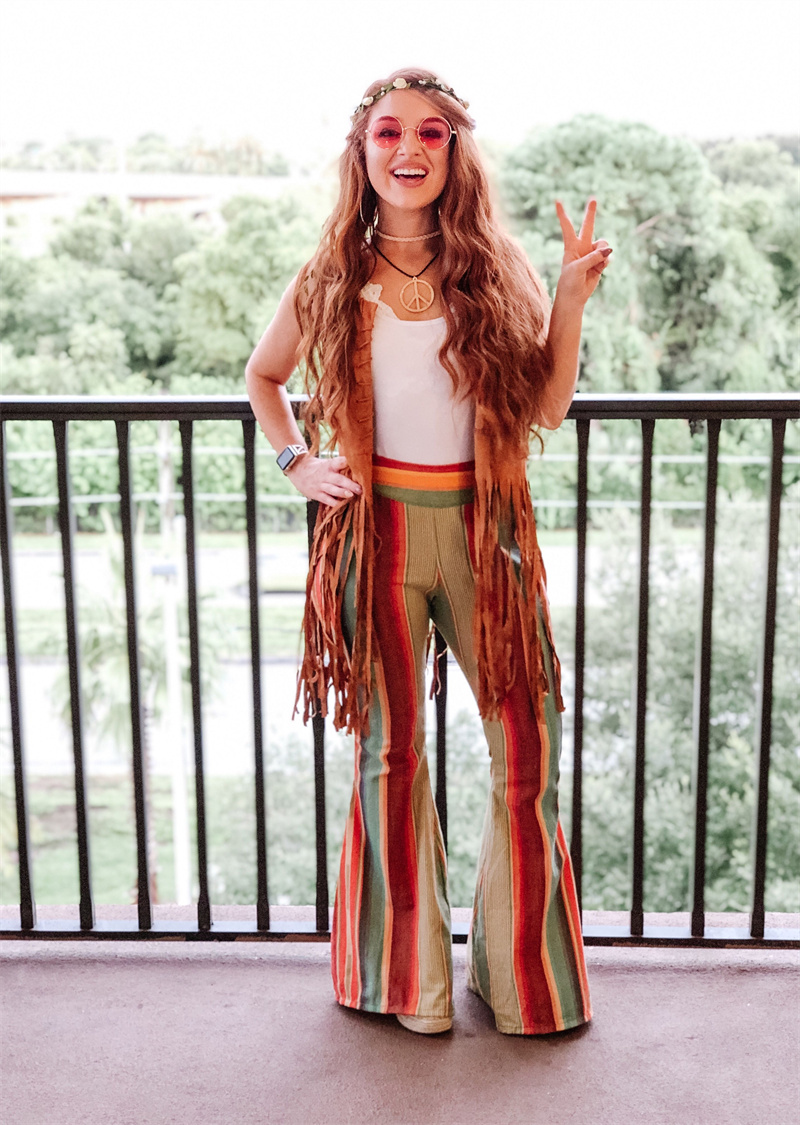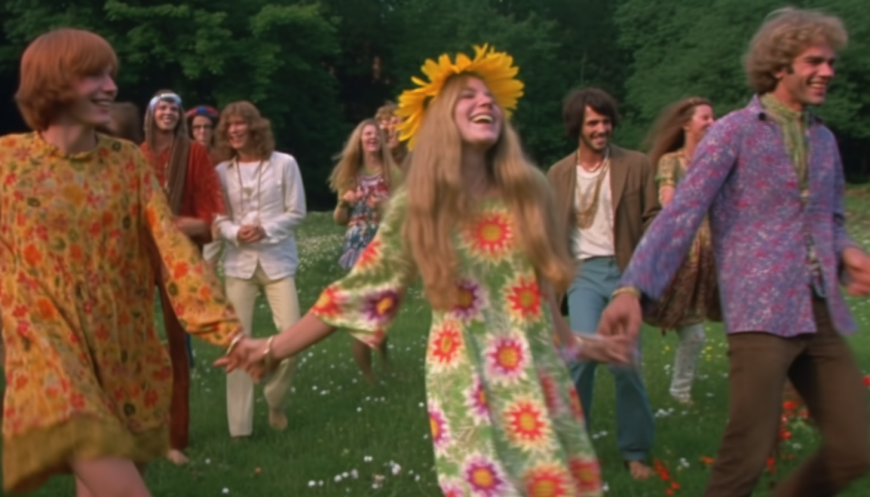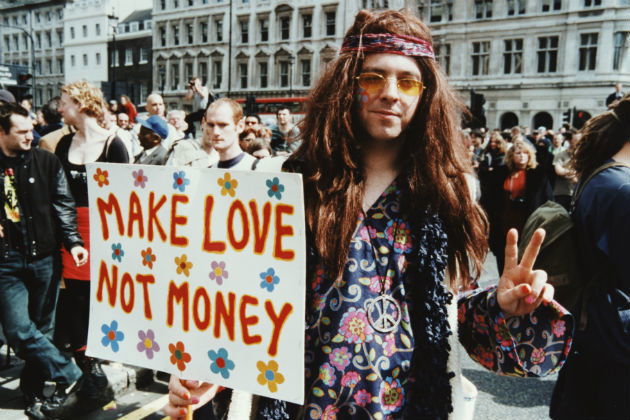When you hear the phrase "hippie guy," what images come to mind? Maybe it is a vision of someone with long hair, perhaps wearing vibrant clothes, someone who seems to move to a different beat. This label, too it's almost, points to a person who belonged to a particular counterculture. This movement started in the United States and, you know, spread to other countries during the 1960s and the 1970s. It really was, in a way, a major international collective as it grew in popularity and size, shaping many ideas.
The hippie cultural movement, as a matter of fact, began its journey in the early 1960s. It was, quite simply, a response to the way things were. Folks involved in this movement, they just sort of, rejected the common ways of mainstream American life at the time. This whole scene, it actually started on college campuses, which is kind of interesting when you think about it. These were places where new thoughts often take root, and that's precisely what happened here.
What exactly did this movement stand for? Well, it was, in some respects, all about embracing peace, love, and freedom. Hippies, they generally, opposed puritan values, those traditionalist foundations of society, and especially wars. It was an intriguing look inside a movement that brought ideas of peace, certain substances, and free love across the United States, shaping a whole generation. The spirit of the hippie, it really, continues to resonate even to this day.
Table of Contents
- Understanding the Hippie Guy: A Cultural Story
- Core Beliefs and a Different Way of Life
- The Ripple Effect and Lasting Impact
- Common Questions About the Hippie Guy
- Reflecting on the Hippie Legacy
Understanding the Hippie Guy: A Cultural Story
To truly get a sense of the "hippie guy," we should, you know, look at the story of this cultural figure. This isn't about one specific person, but rather, it's about a collective identity that came to represent a significant shift in thinking. This kind of person, they were part of something bigger, a movement that really questioned everything around them. It's a tale of how a group of people, just sort of, decided to live life on their own terms, away from what was considered normal.
Defining the Hippie Archetype
The "hippie guy" is, in essence, a label for a person who belonged to a subculture. This subculture, which is that, started in the United States and then, pretty quickly, spread to other countries. It emerged during the 1960s and 1970s, a time of considerable change and questioning. This individual, you know, represented a rejection of many established norms. They were, in a way, a living statement against the usual path.
While we can't create a typical biography for a single "hippie guy," we can describe the general characteristics and beliefs that defined this cultural figure. This table offers a look at the key elements that made up the "hippie guy" archetype. It provides a quick summary of what this identity was all about, giving you a clearer picture of their general outlook.
| Characteristic | Description |
|---|---|
| Countercultural Affiliation | Member of a movement that rejected mainstream American life's mores. |
| Origin Period | Active during the 1960s and 1970s. |
| Core Values | Embraced peace, love, and freedom. |
| Societal Stance | Opposed puritan values, traditionalist societal foundations, and wars. |
| Movement Impact | Part of an influential cultural movement that became a major international collective. |
| Lifestyle Focus | Centered on alternative ways of living, often including communal living and artistic expression. |
The Birthplace of a Movement
The hippie movement, you see, didn't just appear out of nowhere. It actually originated on college campuses across the United States. These places, they were, like, hotbeds for new ideas and discussions. Young people, they were, in a way, questioning the world around them. This initial spark on campuses soon grew, spreading beyond academic halls and into broader society. It really shows how powerful a few new ideas can be when they catch on.
From these beginnings, the movement gained strength, becoming, you know, a significant cultural force. It wasn't just a small group; it grew into a major international collective. This growth meant that the ideas of peace, love, and freedom, along with a questioning of traditional norms, started to resonate with people far and wide. It's pretty amazing, actually, how quickly it all spread and took hold in different places.
Core Beliefs and a Different Way of Life
At the heart of the "hippie guy" identity was a very clear set of beliefs and a desire to live life differently. This wasn't just about appearances; it was, you know, about a fundamental shift in how one viewed the world. They sought a path that was, in some respects, more authentic and connected to human values, rather than material possessions or societal expectations. This commitment to their beliefs truly set them apart.
Peace, Love, and Freedom
The hippie lifestyle, it's pretty clear, was all about embracing peace, love, and freedom. These weren't just catchy phrases; they were, like, guiding principles for how to live. Peace meant an end to conflict, especially wars, which they strongly opposed. Love was about universal acceptance and connection with others, regardless of background. Freedom, too it's almost, was about breaking free from societal constraints and living authentically.
This focus on peace, love, and freedom shaped their daily choices. It influenced their music, their art, and their communal living arrangements. They truly believed in these ideas, and they tried, in a way, to live them out every single day. It was a philosophy that, you know, resonated deeply with many people who felt a similar yearning for a more harmonious existence.
Standing Against the Status Quo
Hippies, they generally, opposed many aspects of the mainstream American life they saw around them. This included puritan values, which they felt were too restrictive and judgmental. They also pushed back against the traditionalist foundations of society, feeling that these structures often led to inequality and conflict. Their stance was, in some respects, a direct challenge to the established order.
One of their most significant points of opposition was war. The anti-war sentiment was, you know, a huge part of the movement, especially during the Vietnam era. They saw war as the ultimate contradiction to their ideals of peace and love. Their protests and their very way of life served as a powerful statement against violence and aggression, a message that, in a way, still holds weight today.
The Ripple Effect and Lasting Impact
The influence of the "hippie guy" and the broader movement extended far beyond the 1960s and 70s. It created, you know, a ripple effect that touched various aspects of culture, society, and individual thought. This impact is still felt today, showing just how deeply these ideas took hold. It's pretty clear that what started as a countercultural wave left a lasting mark on the world.
Beyond the Borders
The hippie cultural movement, it actually, started in the United States, but it didn't stay there. It became a major international collective, spreading to other countries as its popularity grew. This global reach meant that ideas about peace, love, and freedom, along with a questioning of mainstream norms, found resonance with people across continents. It was, in a way, a truly global phenomenon, connecting people with shared aspirations.
This international spread helped to solidify the movement's influence. It showed that the desire for a different way of living, for more harmony and less conflict, wasn't just an American thing. It was, you know, a human desire that spoke to many. This broad appeal helped ensure that the core messages of the hippie movement would continue to be discussed and explored for years to come. You can learn more about countercultural movements on our site, for instance.
Hippie Ideals Today
Even though the peak of the hippie movement was decades ago, its ideas and spirit continue to this day. You can, you know, see echoes of their beliefs in various modern movements. Environmentalism, for instance, has roots in the hippie emphasis on living in harmony with nature. The push for social justice, too it's almost, often reflects their calls for equality and challenging oppressive systems.
The concept of a "hippie guy" might seem like a historical figure, but the values they championed remain quite relevant. People still seek peace, they still want freedom, and they still, in a way, look for love and connection. The countercultural spirit, that willingness to question and to seek a better way, is something that, you know, never truly goes away. It just keeps evolving, finding new expressions in our current times, perhaps even in unexpected places.
Common Questions About the Hippie Guy
People often have questions about the "hippie guy" and the movement they represent. Here are some common inquiries, with answers drawn from what we know about this influential period. It's pretty interesting, actually, how these questions keep coming up, showing a continued curiosity about this unique cultural phenomenon.
What is a hippie?
A hippie, sometimes spelled "hippy," is a label for a person of a particular counterculture. This subculture, it actually, started in the United States and then spread to other countries during the 1960s and the 1970s. They were, in a way, members of a movement that rejected the common ways of mainstream American life, seeking a different path.
Where did the hippie movement start?
The hippie movement, it originated in the United States in the 1960s. It specifically began on college campuses, where students and young people, you know, started to question societal norms and express new ideas. This initial spark then grew into a much larger, international collective as it gained popularity and size.
What did hippies believe in?
Hippies believed in a lifestyle centered on peace, love, and freedom. They opposed puritan values, the traditional foundations of society, and wars. Their core message was about embracing a more harmonious and unrestricted way of living, often advocating for universal love and non-violence. They truly, in a way, lived by these principles.
Reflecting on the Hippie Legacy
The "hippie guy," as a cultural symbol, represents a powerful moment in history when a significant group of people chose to challenge the status quo. They sought, you know, a world built on different values, a world where peace and love were paramount. Their influence, too it's almost, went beyond just fashion or music; it truly touched the way many people thought about society, freedom, and personal expression. This movement, which is that, continues to spark conversations and inspire new generations.
Understanding the "hippie guy" is, in some respects, about understanding a crucial chapter in cultural history. It's about recognizing the courage it took to stand apart and advocate for a different vision. This look at their story, we hope, gives you a clearer picture of who they were and what they stood for. To understand more about the historical context, you could, for instance, visit the Britannica entry on the Hippie movement. Also, link to this page here for related content.



Detail Author:
- Name : Fletcher Kemmer
- Username : dorris03
- Email : ometz@yahoo.com
- Birthdate : 2000-03-18
- Address : 6072 Godfrey Place Suite 395 Marcosland, FL 10131
- Phone : 470.866.7668
- Company : Jones Ltd
- Job : Financial Analyst
- Bio : Porro impedit eos dolores voluptate et. Ratione quis cum quo voluptas odit ullam velit ex. Id veritatis accusantium corporis sint quo magni laudantium.
Socials
twitter:
- url : https://twitter.com/gregory5109
- username : gregory5109
- bio : Et pariatur et illo. Eligendi aut reprehenderit praesentium quisquam ipsum.
- followers : 352
- following : 196
facebook:
- url : https://facebook.com/gregory7412
- username : gregory7412
- bio : Dolorem est minus velit. Sit sed qui sit pariatur autem.
- followers : 363
- following : 1805
tiktok:
- url : https://tiktok.com/@wunschg
- username : wunschg
- bio : Omnis aperiam commodi ipsam voluptas. Id hic unde deserunt dolorem sint.
- followers : 5504
- following : 2790
linkedin:
- url : https://linkedin.com/in/gregory4988
- username : gregory4988
- bio : Temporibus a amet et iusto.
- followers : 347
- following : 2160
instagram:
- url : https://instagram.com/gregory.wunsch
- username : gregory.wunsch
- bio : Quasi velit consequatur aut impedit. Quia dolorem cum et rem veritatis facilis quis.
- followers : 6839
- following : 180

